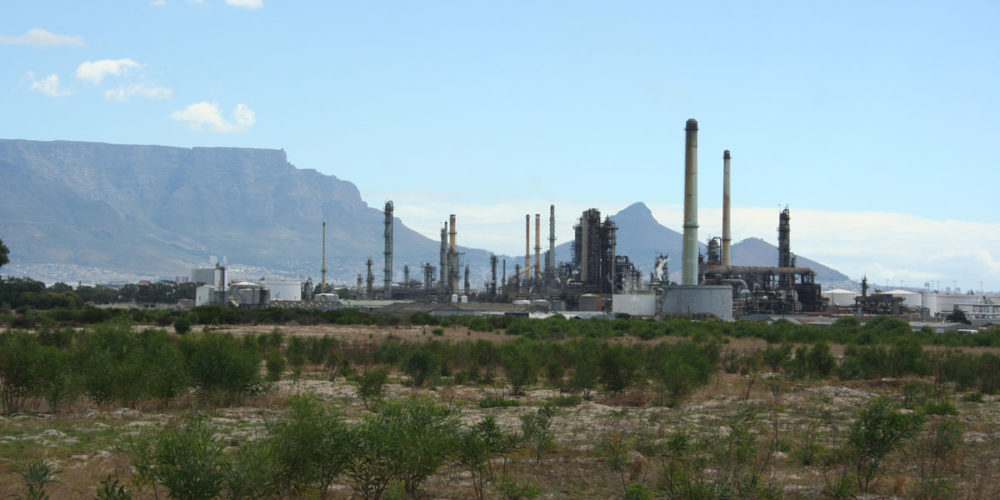The surprise announcement that Chevron CEO John Watson will be stepping down next month caught me and a lot of other people by surprise. I quickly had a flashback to the May 31 annual shareholder meeting that I attended and my one (and likely only) unsatisfying interaction with Chairman Watson.
Attending the Chevron shareholder meeting in Midland, Texas in May was one of the most surreal experiences of my life. It started with the black suits, dark sunglasses, and earpieces that met us at the entry gate and were stationed across the parking lot in strategic places. Then came the examination of my watch at the security checkpoint, after I had been essentially stripped of all personal belongings (save the 8-1/2 x 11 pages of my typewritten notes and one ballpoint pen). I had never been in a situation as potentially intimidating as that one.
I was recruited by UCS to travel to Midland on behalf of a shareholder who wanted to press Chevron to stop spreading and supporting climate science disinformation and do its fair share to address climate change as we transition to a carbon-constrained world.
While one of two shareholder proposals pertaining to climate change was withdrawn before the meeting, my impetus for attending remained: To press the company on its plan for action. And climate change was the 800-lb gorilla in the room. It came up at multiple points in the Chairman’s presentation and assorted remarks. But not in an authentic, satisfying way. It felt more like the company was checking the “climate change” box that companies are now obligated to check due to investors’ ongoing concerns and pressure.
My heavily rehearsed statement clocked in at just under the allotted two minutes–did I mention the giant countdown clock projected on the screen behind Chairman Watson? At the end, I asked CEO Watson the following question:
My question, Mr. Watson is: Since you have acknowledged that ‘Reducing greenhouse gas emissions is a global issue that requires global engagement and action,’ how will you make Chevron a global leader on climate change and strategies for a low-carbon future?
I went out of my way to give Mr. Watson an opportunity to speak about what Chevron was doing on the climate issue, how he and his company were taking leadership on one of the greatest challenges of our century.
I mentioned their March 2017 report Managing Climate Change Risks. But the response I received was a disappointing “it’s all in our report.” Whereas he could have elaborated on Chevron’s “actions and investments to manage greenhouse gases,” (energy efficiency initiatives, high-efficiency power plants, biofuel research because they believe “second- and third-generation biofuels could help meet the world’s future energy needs”), he chose not to do so. Instead, moving quickly to a fiduciary perspective, Mr. Watson then assured stockholders that there would be no stranded assets since we will still need fossil fuels for decades, and that Chevron is not at risk of failing to provide return on investment in the assets it develops in the future.
I remember leaving the meeting wondering why CEO Watson seemed incapable of providing a vision of Chevron in a world that is rapidly evolving to understand the risks of climate change. Maybe the answer to that question is that he did not have much of a long-term vision of himself at Chevron.
Under Mr. Watson, this is an oil and gas operation that is very, very reluctant to embrace the energy world of the future. It remains to be seen whether Chevron’s next CEO is cut from the same or different cloth.
More on Chevron:
* Climate Risk in the Spotlight of Chevron’s Annual Shareholder Meeting
* Chevron, ExxonMobil Face Growing Investor Concerns About Climate Risk
* Chevron Denies Climate Risk to Shareholders While Supporting the Spread of Climate Disinformation

